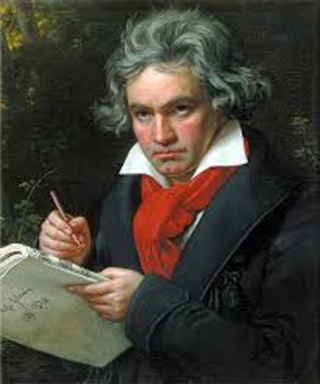6/5/2021 Personal Thoughts about Composers and Their Works - Introduction
- Takeaki Iida

- Jun 6, 2021
- 4 min read

Well over 80 years old, for more than a decade after retiring from my corporate life, I have been listening to classical music mainly on TV broadcast, recorded video playback and occasional live concerts in my daily life. I rarely have listened to the records and CDs I bought when I was younger.
I wanted to listen to the records and CDs that I bought and stored, so I came up with the idea of re-listening to each composer and putting together my personal thoughts and comments.
Those are notes for myself, thus not intended for musicians, composers, critics, journalists, teachers, etc., and those who are not interested in classical music, should not bother reading them.
It has already been a year and a half since the COVID-19 virus has shaken mankind. It has spread and the world has fallen into a pandemic state. I took up "Schumann" in Chapter 1 first, thinking that it would be somewhat meaningful to me to start this blog at this time when “a year postponed Olympic 2020” is, unfortunately, likely to be held in July, only a month-and-a-half later from now.
Why is Chapter 1 Schumann? In my opinion, Schumann is a composer who cannot easily be commented unlike Bach, Beethoven, Mozart, Brahms, Schubert, Chopin, etc. on anything other than he was a composer for the Romantic era of classical music. I just wanted to pick it up and clarify it.
For your reference the following is a list of the composer's works that I listened this time.
June 2021
Takeaki Iida (82 years old)
※Media # notation (R = record, C = CD, V = video)

Chapter 1: Robert Schumann
(1810 - 1856, died at 46 years old)
Robert Schumann was born in Zwickau, Saxony, Germany. His father is said to be a well-educated book seller and his mother was good at singing. While he studied organ and piano early on, he was indulging in reading books at his home. At the age of 16, his father died and at the request of his mother he went on the legal path from Leipzig University to Heidelberg University. However, his ambition for music is undeniable, and from the age of 26 he refocused on the musical path. He loved Clara Wieck, the beloved daughter of piano teacher Friedrich Wieck, but Wieck strongly opposed the relationship due to Schumann's life instability. As a result of his excessive practicing piano, he injured the ring finger of his right hand and abandoned his career as a pianist. Schumann married Clara Wieck, after a long and acrimonious legal battle with her father, Friedrich, who opposed the marriage.
He expanded his musical career from Dresden to Düsseldorf while he was in a lull in the fight against mental illness. He died about two years after he suddenly jumped out of the room and threw himself into the Rhine. When he was young, he was impressed by Schubert's REIT, and after becoming a composer, he was a person who quickly recognized the talents of Brahms, Chopin, and others, and took them up in his writings.

The first music that comes to mind when I hear Schumann is the piano music "Kinderszenen" (Op.15※⑥ to "Troy Melai", Symphony No. 3 in E-flat major "Line" (Op.97) ※①. For those who are familiar, I think the songbook "Woman's Love and Life" (Op.47) ※⑦, and "Dichterliebe" (Op.48) ※⑧ come to our mind. If you think about it, it is easy to remember because these have subtitles.
However, despite being more prominent than other famous composers, I wonder why there are surprisingly few music that I immediately remember as an amateur. As a Romantic-era composer, one of Schumann’s is most successful areas is small piano music, with impressive, fantastic, and lyrical melodies, but like his life, he always seems to have been lost. It is also an impression that can be felt in his music.

When I listen to what I have again, in addition to the above, Symphony No. 4 in D minor (Op.120) ※②, Piano Concerto in A minor (Op.54) ※③, Violin Sonata No. 1 in A minor (Op.105) ※④, No. 2 in D minor (Op.121) ※⑤, etc. were particularly wonderful.
※① Symphony No. 3 in E-flat major "Line" (Op.97): Composed when Schumann was moving from Dresden to Düsseldorf. This piece has heroic optimism and romantic scent.
※② Symphony No. 4 in D minor (Op.120): The premiere was unpopular and has a history of being rewritten, but it is a masterpiece with fantasy-like tune.
※③ Piano Concerto in A minor (Op.54): The characteristics of this piece is typical of Schumann's music with fantasy and poems, different from Chopin and Liszt of the same era.
※④⑤ Violin Sonata No. 1 in A minor (Op.105), No. 2 in D minor (Op.121): Great piece.
※⑥ "Kinderszenen" (Op.15): In a few weeks, Schumann wrote 30 small pieces and selected 13 of them as "Kinderszenen". This is piano music for adults who understand the hearts of children.
※⑦ Songbook "Woman's Love and Life" (Op.47): Schumann’s strong love for Clara is the driving force of his creation. The story is woman’s life composed in 8 pieces of music from her daughterhood love, marriage, childbirth, and the death of her husband.
※⑧ Songbook "Dichterliebe" (Op.48): Composed in 1840. The year 1840 is known as Schumann's “Year of Song” because he wrote over 120 love songs in preparation for his marriage to Clara Wieck. The poetry was taken from the poetry collection "Song Book" by the Romantic poet Heine of the same period. This is a songbook, but the importance of the piano is dominant.
June 3, 2021
.png)



Comments